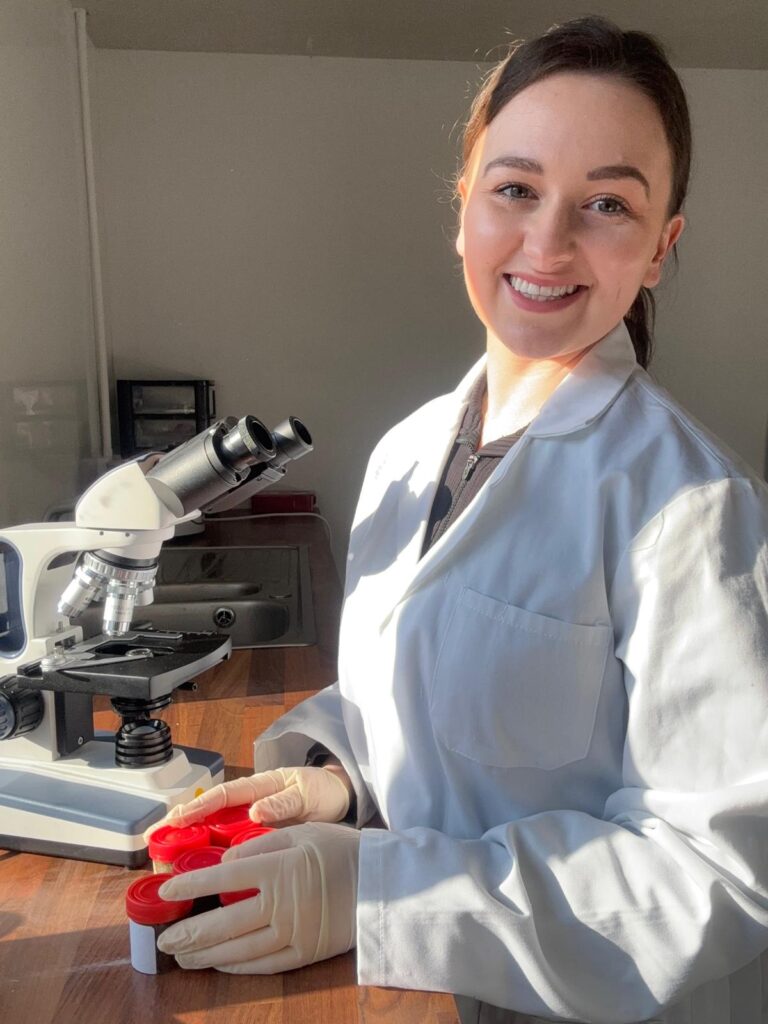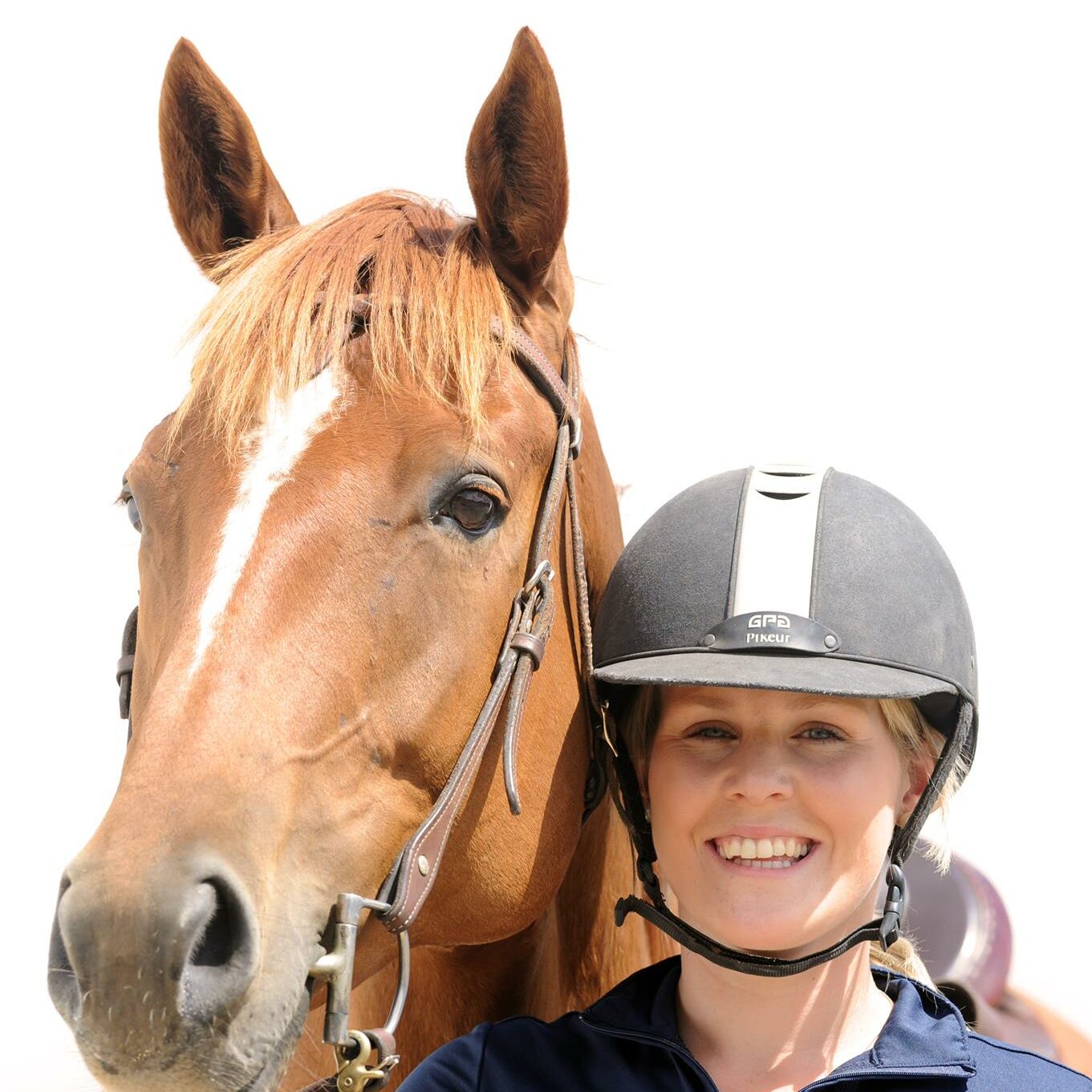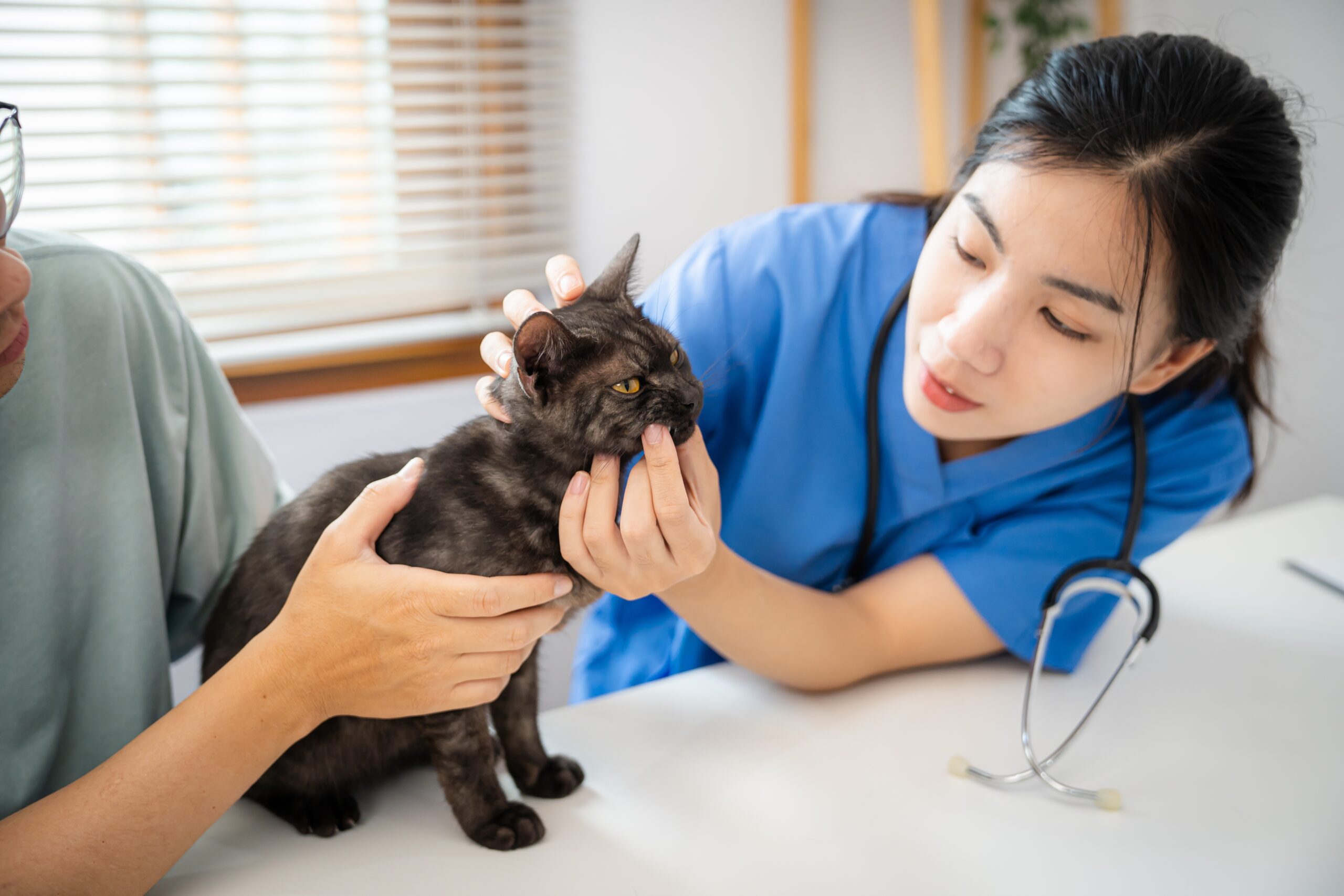I recently had the pleasure of sitting down with Elisha Dodd from Targeted Worming Ireland. Elisha is a mine of information when it comes to parasitic control in horses & is passionate about raising awareness of the benefits of targeted worming in horses. Here’s what she had to say.
Eilisha tell us a little about yourself?
Hi! My name is Eilisha, and I’m the owner of Targeted Worming Ireland. I’m originally from Dublin, but I’m now based in the lovely countryside of west Limerick. Horses have always been a passion of mine, especially in the areas of equine behaviour and welfare. Two years ago, I decided to combine this passion with my background as a scientist, which led me to start this new venture. I am now fortunate to work closely with horses and their owners on a one-to-one basis. While much of my work takes place in the lab, I thoroughly enjoy seeing the benefits that my programs and services bring to both horses and their owners.
How did you get into doing faecal egg counting?
A few years ago, I decided to take a career break and travel to Australia. While working with horses there, I came across targeted worming- something I had never heard of before!
Back in Ireland, I had spent years working in riding centres and livery yards growing up, yet I had never come across discussions about wormer resistance or the importance of testing before treating. When I started researching it, my mind was blown. How was this not common practice in Ireland? Were people talking openly about the challenges ahead for horse owners—and, most importantly, for our horses?
That curiosity led me to take the plunge and learn as much as I could about gastrointestinal parasites in equines. I reached out to a good friend of mine who has horses and lives near my parent’s house. She probably thought I was a bit nuts, but she agreed to let me take some samples from her horses.
And that’s really where it all began—me walking through the village with a schoolbag full of horse manure! Looking back, that image makes me laugh, but I’m incredibly grateful for the opportunities that have come my way since.

Three things you would love horse owners to know
It’s hard to pick only 3 things!
There is so much information available that owners can sometimes feel overwhelmed and unsure where to begin! However, most horses can follow a simple, effective plan that covers the main parasites they encounter while reducing unnecessary chemical use. We’ve seen firsthand how successful this approach is in reducing the number of wormers needed. Clear guidelines exist for using the right wormers, at the right time, and in the right cases to maximize effectiveness—something that is more important than ever. Without a targeted approach, both horses and the environment are exposed to chemicals unnecessarily, with no real benefit.
Some people hesitate to submit samples because they worry about being judged if their horse tests positive for parasites or has a high egg count. But there is no shame in it—every horse is different in how they manage parasites. Many factors play a role, such as age—young horses often have higher counts as their immune systems develop, and older horses may struggle as their immunity declines. While good management helps, some horses will always be high shedders, and it takes time and the right targeted plan to stabilise their levels. Our goal is to support and inform owners, no matter their results. We have nothing but respect for those who choose to test and follow a targeted worming program. So, if you’re on the fence—take the plunge!
Overuse and misuse of wormers have allowed parasites to adapt and develop resistance. By continuing to blanket worm, we kill the susceptible parasites, but the resistant ones survive and continue to reproduce, eventually creating a larger resistant population. If this continues, we will face a serious problem where worm burdens become extremely difficult to manage. We need to implement targeted worming on a larger scale in Ireland and be proactive. This isn’t just about now—it’s about securing the future of equine health.
A common misconception about parasites in horses.
Many people assume that you can tell what a horse is dealing with in terms of parasites just by looking at them. Typical signs associated with gastrointestinal worms include a dull coat, pot-bellied appearance, loose droppings, and ill-thrift. While these symptoms can indicate a parasite issue and should not be ignored, we often see horses with very high worm egg counts that show no obvious symptoms at all. This highlights the importance of regular testing.
One of the most critical examples of this is encysted redworms. These are an immature stage of the redworm lifecycle that burrow into the gut wall in cold temperatures to hibernate. As temperatures rise in spring, they emerge, causing damage and inflammation to the gut lining. If large numbers emerge at once, it can result in larval cyathostominosis, a potentially fatal condition. Faecal egg counts do not detect encysted redworms, so either a separate test or the right winter treatment is essential. By using faecal egg counts throughout the year to track worm burdens, owners can better prepare for winter and reduce reinfection risks within the herd.
What are owners surprised by?
Owners who submit full-yard or herd testing are often surprised by how varied the results can be for each horse. Many expect their horses to have similar levels of egg shedding and parasites present, but testing a group often reveals significant differences. Generally, 20% of horses carry 80% of worms. This means that in well-managed groups following a targeted worming approach, only a few horses will require treatment. Factors such as age, clinical condition, immunity, environment, and management all influence a horse’s worm burden. By identifying and targeting high shedders within a group, we can significantly reduce pasture contamination and, in turn, lower reinfection rates for the entire herd.
Owners are also often surprised by follow-up testing when wormers do not perform as expected. Testing 10–14 days after treatment is a valuable tool for assessing the effectiveness of a wormer. Many people view resistance as a distant problem—until they see it firsthand in their own horses. In reality, resistance is common but often goes unnoticed unless owners conduct regular follow-up testing.
What services do you offer?
We support owners on a one-to-one basis, providing consultations, testing and educational resources to make targeted worming simple and accessible. We carry out faecal egg counts (worm egg counts) in house in our dedicated lab and we also facilitate tapeworm testing using Equisal Kits from Austin Davis Biologics. By offering both tests, we help owners implement regular monitoring for the most common gut worms that horses encounter. We have collection routes established in areas of Kildare, Meath and Wicklow, with additional added based on demand. For owners outside of these areas, we offer a straightforward postal option.
This year we are placing an even greater emphasis on education, hosting webinars, in- person talks and stands at local shows which all of which have received very positive feedback.
What are your business goals for 2025?
One of our main goals for 2025 was to offer Equisal kits for tapeworm testing, and we’re delighted to have successfully implemented this. We also have a few exciting projects in the works, but I can’t reveal too much just yet! Our primary focus remains on raising awareness about the importance of targeted worming and supporting owners who adopt this approach.
This year, we’ve expanded our capacity to include more equines in our testing program, which is a really exciting step forward!
Where can people find you?
We are very active on social media, so you can connect with us on Instagram and Facebook (@TargetedWormingIreland), where we share educational content, updates, and insights on all things related to targeted worming and our services.
For direct inquiries, you can reach out to us anytime via email at targetedwormingireland@gmail.com—whether you have questions about testing, need advice on your horse’s worming plan, or want to learn more about our services.
We also attend local equestrian events, shows, and educational talks, so keep an eye on our social media pages for updates on where you can meet us in person!


Share
Your subscription is 100% Free for our first year, No credit card details required.

There are few sporting events that live up to the hype. Wimbledon? Too many strawberries. Cheltenham? Too many suits. But

British Veterinary Association publishes full response to Competition and Markets Authority’s proposed remedies for veterinary market for household pets. The

Sunday 1st June – Raheendaw, Rathvilly, Co. Carlow The Raheendaw Horse & Pony Show returns this weekend with a packed